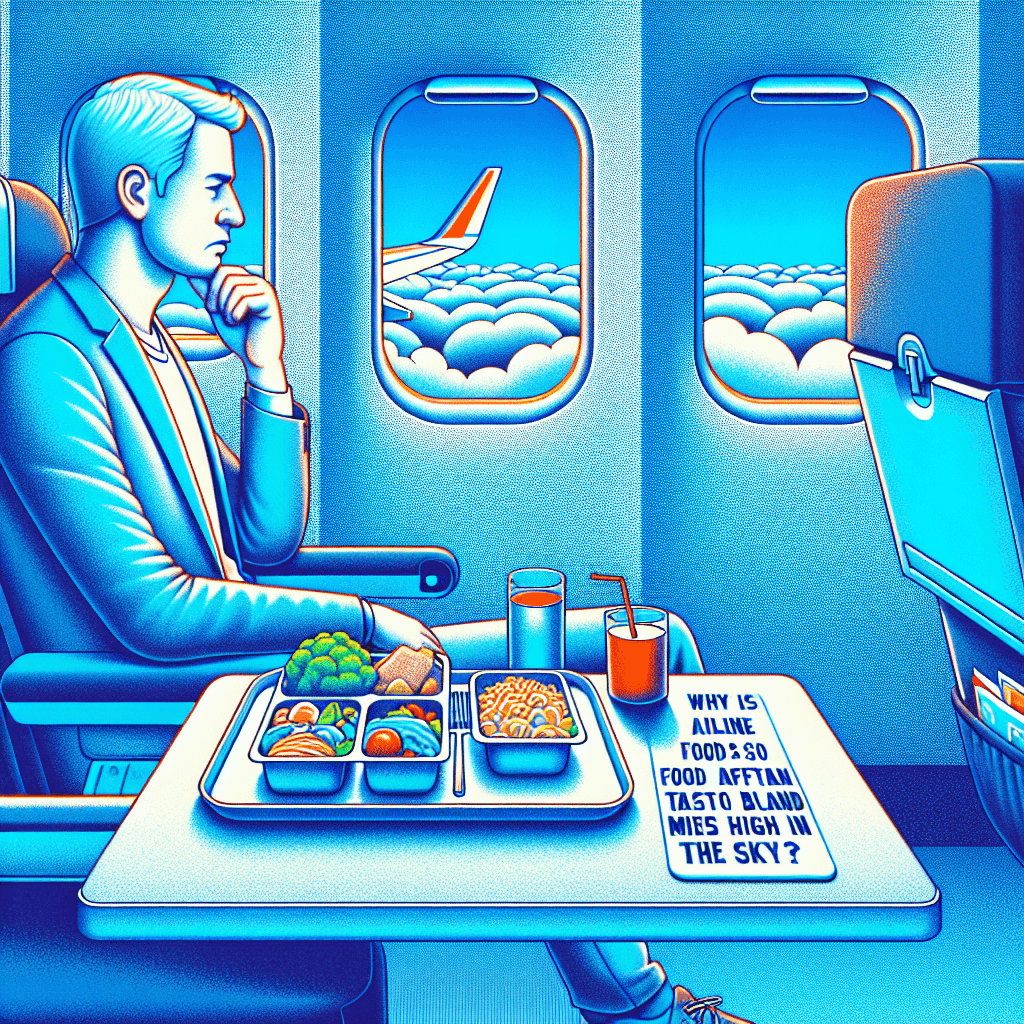Cleared for Bland-off Why Airline Food Tastes Different at 35,000 Feet
Ever peeled back the foil on an in-flight meal, only to be disappointed by the bland taste? You're not alone, and the reason has less to do with the chef and more to do with the altitude.


Too Long; Didn't Read
Airline food often tastes bland because the low humidity and air pressure in a plane cabin at high altitudes significantly dull your sense of taste and smell.
Cleared for Bland-off? Why Does Airline Food Often Taste So Bland Miles High in the Sky?
Ever peeled back the foil lid on your in-flight meal, anticipating a tasty break from the journey, only to be met with… well, blandness? You’re not alone. For decades, travelers have pondered the mystery of lackluster airline food. Is the chef having an off day? Are the ingredients subpar? While airline catering faces unique challenges, the primary reason your meal tastes different at 35,000 feet has less to do with the food itself and more to do with you and the aircraft cabin environment. This post delves into the science behind why our sense of taste takes a nosedive when we fly.
The High-Altitude Heist: How the Cabin Environment Steals Flavor
The moment you step onto an airplane, your body starts reacting to an environment vastly different from the ground. Two key factors drastically alter your perception of taste and smell:
1. Dry Air and Low Pressure
Aircraft cabins are pressurized, but typically only to the equivalent of being 6,000 to 8,000 feet above sea level. This lower air pressure, combined with extremely low humidity levels (often drier than desert air, sometimes below 12%), significantly impacts your senses.
- Drying Effect: The dry air evaporates moisture from your nasal passages. Since your sense of smell (olfaction) is crucial for perceiving flavor complexity, this dryness numbs your ability to detect aromas effectively. Think about how food tastes when you have a bad cold – it’s a similar effect.
- Taste Bud Sensitivity: Research, including studies conducted by Germany's Fraunhofer Institute for Building Physics, confirms that our sensitivity to certain tastes diminishes at altitude. Specifically, the ability to perceive saltiness and sweetness can decrease by as much as 30 percent. Interestingly, sour, bitter, and spicy notes seem less affected.
2. The Roar of the Engines
It might sound strange, but the constant background noise in an aircraft cabin also plays a role. Studies, like those published in the journal Food Quality and Preference, have shown that loud background noise, such as the persistent hum of jet engines:
- Suppresses Sweetness: Makes sweet flavors harder to detect.
- Enhances Umami: Can actually make savory flavors (umami) seem more intense. This might explain why umami-rich options like tomato juice, mushroom dishes, or parmesan-sprinkled pastas are often perceived as more satisfying on flights.
Catering Challenges: Cooking Against the Odds
While the cabin environment is the main culprit, preparing food for hundreds of passengers to be served hours later in the sky presents its own set of hurdles:
- Pre-cooking and Reheating: Meals are typically cooked on the ground, blast-chilled or frozen, and then reheated onboard using convection or steam ovens. This process can inevitably affect the texture and moisture content of food, potentially leading to drier meats or softer vegetables.
- Logistical Constraints: Limited galley space, weight restrictions, and strict safety regulations influence ingredient choices and preparation methods. Complex or delicate dishes are often impractical.
- Compensation Efforts: Aware of the sensory challenges, airline caterers often intentionally increase seasoning, particularly salt and spices, in their recipes to compensate for the anticipated loss of flavor perception at altitude. They also increasingly focus on umami-rich ingredients known to withstand the effects of the cabin environment better.
So, It's Not Just the Food?
Next time you find your airline meal less exciting than hoped, remember it's largely a trick of the environment. The combination of low humidity dulling your sense of smell, low pressure reducing taste sensitivity (especially for sweet and salty notes), and cabin noise subtly altering perception creates a perfect storm for blandness. While catering logistics add complexity, the fundamental change happens within our own senses miles high in the sky. Understanding this science doesn't magically make the food taste better, but it does explain why that chicken or pasta seems a bit off – it's not just the meal, it's the altitude affecting you. Perhaps focusing on those umami-rich options or bringing your own flavourful (but non-liquid!) snacks is the way to go.


